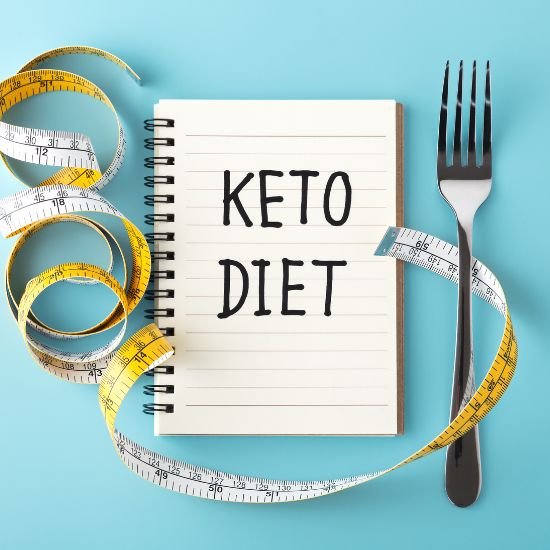
FAQs about MCTs -Sharrets Nutritions
Share
Frequently asked questions about MCT I FAQS about MCT. Facts about MCT oil.
1. What are Medium Chain Triglycerides ( MCTs) ?

‘Medium chain’ refers to the way the carbon atoms in MCTs are arranged in their chemical structure. Usual dietary fats, like cooking oil, accommodates LCTs (Long chain triglycerides) that are harder to absorb.
Medium chain triglycerides (MCTs) or medium chain fatty acids (MCFA) encompass Caproic acid (C6:0), Caprylic acid (C8:0), Capric acid (C10:0), and Lauric acid (C12:0). However, C6 is often excluded in commercial products due to its bad odour and taste, while C12 possesses metabolic behavior resembling LCT.
2. Are MCT (Medium chain triglycerides) Safe ?
MCTs have been used successfully as a treatment for premature newborn babies since 1950s. Today, MCTs are an essential addition to infant formula. MCTs are used for clinical applications such as treating malnutrition, malabsorption. Since 1994, Medium chain Triglycerides (MCT) has received Generally Recognized As Safe (GRAS) status in food by the US FDA (4)
3. What MCT oil does to your body I How does MCT works ?
The way MCTs metabolize in our body is unique: MCTs have a small molecular structure and are very soluble, making it easier for your body to absorb, unlike other edible oils.
MCTs are transported directly from the small intestine to the liver (1,2,) where they are naturally converted into ketones, ready to be used for energy instead of being stored in the body as fat. Ketones are an alternative fuel for the brain. Research shows that MCTs improve learning, memory and brain processing in people with mild to moderate Alzheimer’s disease (3).

4. What is Ketogenic diet & how MCT supports it ?
Low in carbs with moderate protein and high in fat, a ketogenic diet prompts the body to burn fat for energy rather than glucose, which leads to the production of ketone bodies—molecules that can be used as a source of fuel. A typical ketogenic diet consists of ~70% fat, 20% protein, and 10% carbohydrates. Though this can vary slightly depending on the individual, this diet is specifically designed to induce nutritional ketosis.
Ketosis is a metabolic state in which the body shifts toward the use of fat (both from fat stores and from the diet) as the primary fuel source and moves away from the use of glucose as the source of fuel. Increased ketones and the ketogenic diet can provide numerous health benefits.
MCTs are precursor to other ketone bodies and assists in getting into an effortless state of ketosis.
5. Who should consume MCT & who will benefit from it ?
You must incorporate MCT’s in your diet If - want to feel strong , energized , and your wellness goals are - Weight loss, Athletic performance,Graceful aging , brain health , Muscle maintenance & immune system support.
- Individuals who find their metabolism and energy are decreasing with age.
- MCT’s are Beneficial for those affected by diverticulitis ,Crohn’s disease,, irritable bowel syndrome, & candida. Older persons concerned about neurodegenerative diseases such as Alzheimer’s Disease and Parkinson’s Disease
- MCT provides the clean nutrition you need to fuel your life. Athletes seeking to increase endurance, improve energy levels and attain faster recovery.
- Healthier energy source for those who wish to enhance their metabolism and are trying to cut carbs or for those adhering to ketogenic diet to achieve better weight management .
- Individuals looking to improve attentiveness or alertness, clarity of thought & energy during long study or working hours .
- Additionally, MCTs are helpful for individuals with malabsorption issues and difficulties utilizing LCTs.
6. What are the benefits of MCT ?
Included below is a list of possible benefits that have been associated with using Medium chain triglycerides (MCT oil ) of various types as a dietary health supplement.
ENERGY LEVEL
MCT oil (Medium chain triglycerides) provides the brain & body with increased energy. They are speedily metabolized and provide the brain with improved cognition as a result of ketones. It gives the body more energy for physical exertion & post workout recovery. MCT (Medium chain triglycerides) provides the body with fuel or a quick form of energy.
WEIGHT CONTROL
Studies show that MCTs (Medium chain triglycerides - C8 and C10) may increase the body’s ability to burn fat and calories 5-9. Since MCTs have the tendency to burn directly instead of storing as fat, consuming MCTs will control your body fat 10 level. MCTs are absorbed and used more rapidly than LCTs, hence they are less likely to be stored as body fat 2. MCTs enhance metabolic performance in our bodies and aid in weight management.

IMPROVED BRAIN FUNCTION
MCTs (Medium chain triglycerides) are believed to improve cognitive function. MCTs are processed by the liver, converting into ketone bodies which are delivered directly to the brain, increasing energy in the brain and improving function 11. There is increasing interest in the use of Medium chain triglycerides (MCTs) in treating or delaying brain disorders like dementia & Alzheimer’s disease. One major study found that MCTs (Medium chain triglycerides) improved learning, memory & brain processing in individuals with mild to moderate Alzheimer’s disease 3.
[Read also article by Dr. Mary Newport under Lifestyle section.]
If you supplement MCTs (Medium chain triglycerides) , it will provide your brain with an alternative energy source of ketones as opposed to solely glucose (sugar). Medium chain trilycerides (MCTs) can enhance the brain for better cognitive performance, improve alertness helping busy executives and students who require to stay active and alert during sustained working hours .
MALABSORPTION / MALNUTRITION
Medium chain triglycerides (MCTs) can be easily absorbed. It is often used as therapy for individuals with malabsorption disorders, malnutrition, and epilepsy. They’re also used to aid premature infants in weight gain & digestion 12.
KETO DIET SUPPLEMENT
MCTs (Medium chain triglycerides) are also the ultimate ketogenic fat; in fact, they’re so powerful that adding MCTs to your diet allows you to increase carbs consumption while staying in ketosis. MCTs enhance metabolism and aid in weight management.
BALANCE HORMONES
Medium chain triglycerides (MCTs) provide metabolic & hormonal benefits. Studies have been carried out to show the potential uses of MCTs for treating hypertension,diabetes and the other elements of the metabolic syndrome. In various clinical trials, MCTs (Medium chain triglycerides) provide better results than other fats.
7. How long does it take before I experience the benefits of MCTs?
Medium chain triglycerides (MCTs) are a rapid & fast energy source. Once consumed, MCTs are metabolized immediately and converted into ketones as energy source. Therefore, brain clarity and energy supply will take place almost immediately. For weight management, effects may vary from person to person
8. MCTs have similar “perk-me-up” effects as coffee. Are they references- addictive like caffeine?
The mental alertness brought about by Medium chain triglycerides (MCTs) is different from that of coffee. MCTs ( Medium chain triglycerides) are simply rapid energy suppliers that do not activate the nervous system; they are non-addictive. There has not been any reported case of withdrawal symptoms from MCTs.
In comparisons, caffeine in coffee boosts the brain through activating the central nervous system and leads to withdrawal symptoms and caffeine addiction 13.
9. I am a Virgin Coconut oil user. What is the difference between VCO and MCT?
MCT VS. COCONUT - bulletproof mct oil vs coconut oil.
Virgin Coconut oil (VCO) contains relatively small quantities of MCT’s ( Caprylic acid C8:6% & Capric acid C10:9% of coconut oil) .
Where as MCT is 100% of Caprylic (C8) & Capric (C10) . You need 7 tablespoons of Virgin Coconut oil to get the equivalent benefits of 1 tablespoon of MCT oil.
No doubt coconut oil is beneficial for health , but if you really want to benefit from the MCT’s, choosing Sharrets MCT’s is the way to go.

10. Are MCTs derived from coconut oil or palm kernel oil different?
Coconut oil and palm kernel oil are the rich sources of MCT. Coconut oil is extracted from the white meat (copra) of coconut fruit. Palm kernel oil is extracted from kernel of red palm fruits. The components of palm kernel oil are quite similar to those of coconut oil. Once extracted, MCTs derived from coconut oil or palm kernel oil are identical and offer the same health benefits.
11. What is the difference between MCT Oil & MCT Powder ?
MCT Oil and MCT Powder are both 100% pure MCT oil. MCTs are available in oil and powder form for the preference & convenience of users. MCT oil is a flavorless, odorless dietary supplement and easy to add to daily meals. Add to a salad, mix into a smoothie, or take alone for 15 g of fat .
MCT Powder provides the benefits of MCT in a convenient, powdered option: Delivers 10 g of MCT per serving (contains MCT oil concentrated to 70-75% C8 + C10 fatty acids) • As a dietary supplement, MCT Powder can be added to hot or cold beverages or mixed in baking recipes for ease of use .
12. What is the difference between Sharrets MCT and other commercial MCT products?
Sharrets MCT is Coconut sourced only & it is 100% pure MCT oil. It contains only caprylic acid (C8:0) and capric acid (C10:0) to give the maximum health benefits . Sharrets MCT products are of the highest quality: they are Halal certified , allergen-free, gluten-free, non-GMO and contain no added preservatives.

13. When is the best time to consume MCTs ?
When to consume MCT oil ? Medium chain triglycerides (MCTs) can be consumed with or after meals any time in the day.
- MCTs can best fasted in the morning for greater attentiveness or alertness and better brain function, it is suggested to take MCTs in the morning.
- Between meals for extra fat burning .
- MCT oil in Coffee I Mix in your favorite drink like tea or coffee for sustained natural energy .
- MCT oil before workout- Before workout or exercise for better energy production.
- MCT oil keto I MCT oil Ketosis I After eating carbs to get back into ketosis.
- Mix in shakes & smoothies and used as a substitute for conventional oils in salad dressings,to enhance nutrient absorption & get healthy amounts of fat.
14. Are there any studies / clinical trails to support the benefits of MCTs ?
Research for Medium chain triglycerides (MCTs) began as early as 1930 (14,15.) There are many clinical trials or studies to investigate its benefits and safety (11,16-20).
15. Can I consume MCT if I am on medication ?
While MCT is generally safe for everyone from all age groups, we suggested that individuals with medical conditions consult their healthcare professional before taking MCT oil.

16. MCT oil side effects I Are there any side effects of MCTs (Medium chain Triglycerides) ?
There are no known side effects reported in taking MCT. But, depending on the individual’s tolerance level, some may experience a Gastrointestinal reaction especially when consumed on empty stomach.
To prevent the side effects, it is suggested that new users start consuming MCTs (Medium chain Triglycerides) in a lower dosage (eg, half tablespoon per day), then gradually increase to 2 tablespoons / day. It is also suggested to consume MCT with or after meals.
17. Where to get MCT oil in India / Where to buy MCT oil in India / Where should I get MCT oil in India ? Where can I buy MCT oil powder ?
Click here to buy Keto Supplements or best MCT oil online in India .
Reference:
- Marten, B., Pfeuffer, M. & Schrezenmeir, J. (2006). Medium-chain triglycerides. International Dairy Journal, 16, 1374-1382.
- Bach, A. C. & Babayan, V. K. (1982). Medium-chain triglycerides: an update. The American Journal of Clinical Nutrition, 36, 950-962.
- Sharma, A., Phd, Bemis, M., & Desilets, A. R. (2014). Role of medium chain triglycerides (Axona®) in the treatment of mild to moderate Alzheimer's disease. American journal of Alzheimer's disease & other dementias, 29(5), 409-414.
- Traul, K. A., Driedger, A., Ingle, D. L. & Nakhasi, D. (2000). Review of the toxicologic properties of medium-chain triglycerides. Food and Chemical Toxicology, 38, 79-98.
- Takeuchi H., Sekine E., Kojima K., & Aoyama T. (2008). The application of medium-chain fatty acids: edible oil with a suppressing effect on body fat accumulation. Asia Pacific Journal of Clinical Nutrition, 17(1), 320-3.
- St-Onge MP., Jones PJ. (2003). Greater rise in fat oxidation with medium-chain triglyceride consumption relative to long-chain triglyceride is associated with lower initial body weight and greater loss of subcutaneous adipose tissue. International Journal of Obesity and Related Metabolic Disorders, 27(12), 1565-71.
- St-Onge MP., Jones PJ. (2002). Physiological effects of medium-chain triglycerides: potential agents in the prevention of obesity. Journal of Nutrition, 132(3), 329-32.
- Papamandjaris AA., MacDougall DE., & Jones PJ. (1998). Medium chain fatty acid metabolism and energy expenditure: obesity treatment implications. Life Sciences, 62(14), 1203-15.
- St-Onge MP., Ross R., Parsons WD., & Jones PJ. (2003). Medium-chain triglycerides increase energy expenditure and decrease adiposity in overweight men. Obesity Research, 11(3), 395-402.
- Tsuji, H. et al. (2001). Dietary medium-chain triacylglycerols suppress accumulation of body fat in a double-blind, controlled trial in healthy men and women. The Journal of Nutrition, 131, 2853-2859.
- Courchesne-Loyer, A. et al. (2013). Stimulation of mild, sustained ketonemia by medium-chain triacylglycerols in healthy humans: estimated potential contribution to brain energy metabolism. Nutrition, 29, 635-640.
- Lima, L. A. M. (1989). Neonatal parenteral nutrition with medium-chain triglycerides: rationale for research. Journal of Parenteral and Enteral Nutrition, 13, 312-317.
- Juliano, L. M. & Griffiths, R. R. (2004). A critical review of caffeine withdrawal: empirical validation of symptoms and signs, incidence, severity, and associated features. Psychopharmacology, 176, 1-29.
- Powell, M. (1930). The metabolism of tricaprylin and trilaurin. The Journal of Biological Chemistry, 89, 547-552.
- Powell, M. The metabolism of tricaprin. (1932). The Journal of Biological Chemistry, 95, 43-45.
- DAVIS, N. J. et al. (2009). Comparative study of the effects of a 1-year dietary intervention of a low-carbohydrate diet versus a low-fat diet on weight and glycemic control in type 2 diabetes. Diabetes Care, 32, 1147-1152.
- St-Onge, M.-P., Bosarge, A., Goree, L. L. T. & Darnell, B. (2008). Medium Chain Triglyceride Oil Consumption as Part of a Weight Loss Diet Does Not Lead to an Adverse Metabolic Profile When Compared to Olive Oil. Journal of the American College of Nutrition, 27, 547-552.
- St-Onge, M.-P., Lamarche, B. t., Mauger, J.-F. & Jones, P. J. H. (2003). Consumption of a Functional Oil Rich in Phytosterols and Medium-Chain Triglyceride Oil Improves Plasma Lipid Profiles in Men. The Journal of Nutrition 133, 1815-1820.
- Krotkiewski, M. (2001). Value of VLCD supplementation with medium chain triglycerides. International Journal of Obesity 25, 1393-1400.
- Nosaka, N. et al. (2003). Effects of Margarine Containing Medium-chain Triacylglycerols on Body Fat Reduction in Humans. Journal of Atherosclerosis and Thrombosis 10, 290-298.
















